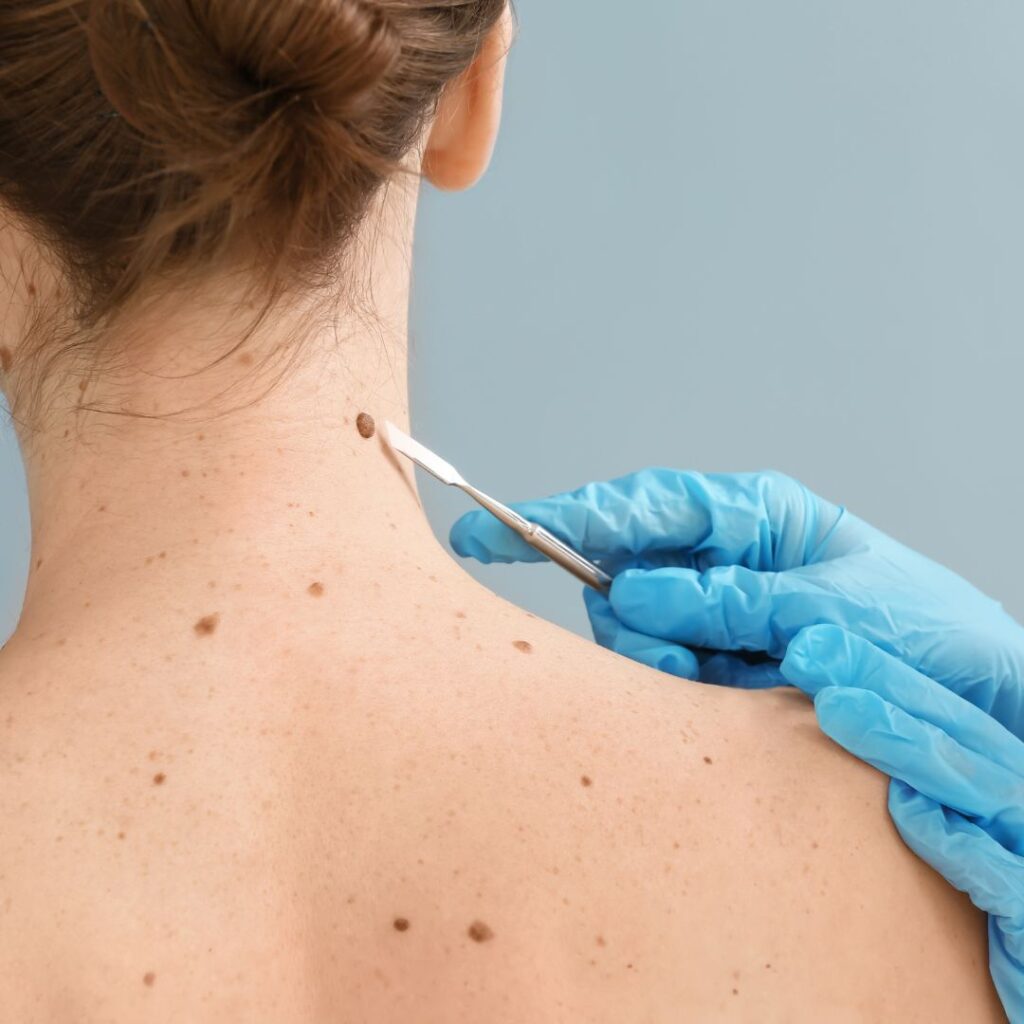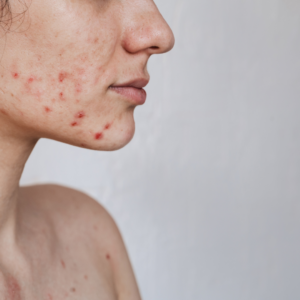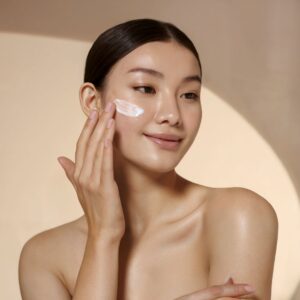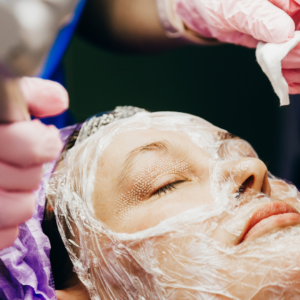
How to Choose the Best Sunscreen: SPF, Ingredients & Skin Type Explained
Discover a youthful lift without surgery. Learn how our thread lift at Bryn Mawr Dermatology can rejuvenate your appearance.
Did you know that over 5 million cases of skin cancer are diagnosed in the United States each year, making it the most common type of cancer? May is Skin Cancer Awareness Month, a vital time to spread knowledge about the dangers of excessive sun exposure and how to prevent this prevalent disease. In this article, we will teach you the essential methods to protect yourself from the harmful effects of the sun.
While this article spells out some important information about skin cancer prevention, we highly recommend you read the full article, here are the key points we will focus on:

Skin cancer arises from the uncontrolled growth of abnormal skin cells, often due to DNA damage typically caused by ultraviolet (UV) radiation. It is the most prevalent form of cancer globally, prompting significant concern for public health.
Skin cancer primarily results from prolonged and unprotected exposure to ultraviolet (UV) radiation from the sun or artificial sources like tanning beds. There are three types of skin cancer: basal cell carcinoma, squamous cell carcinoma, and melanoma, each varying in severity, appearance, and treatment options. Basal cell carcinoma is the most common and least dangerous as it rarely spreads, while melanoma is less common but much more aggressive and likely to metastasize.
With rising skin cancer rates, taking proactive steps to protect yourself from harmful UV rays is more important than ever. According to the Skin Cancer Foundation, daily use of sunscreen can reduce the risk of developing melanoma by up to 50%.
Here are ten helpful tips that highlight more ways to stay safe under the sun:
Apply a broad-spectrum sunscreen with an SPF of 30 or higher, and reapply every two hours or more frequently if swimming or sweating. UV rays can penetrate through clouds, so it’s essential to use sunscreen even on cloudy days.
Opt for long-sleeved shirts, long pants, and skirts made from tightly woven fabrics to cover as much skin as possible. UV-protective clothing with a UPF label provides excellent protection. Furthermore, protect your eyes and the surrounding skin with sunglasses that block 100% UV rays.
Staying under shade can limit exposure to the sun, especially between 10 a.m. and 4 p.m., when UV radiation is at its peak.
Even if wearing hats is not your style, they can significantly protect your skin in the summer. Choose hats with brims all around that shade your face, ears, and the back of your neck, which are commonly exposed to intense sun.
Avoid tanning beds and sunlamps altogether. These devices can cause skin damage and increase the risk of skin cancer.
These surfaces reflect the sun’s damaging rays, increasing your chance of sunburn. When you visit the beach, make sure to reapply sunscreen after a swim.
Before engaging in outdoor activities, check the UV index to understand the day’s UV radiation levels and take appropriate precautions.
Regularly examine your skin for any new or changing spots, moles, or lesions. Early detection of unusual skin changes can lead to better outcomes.
Some studies suggest that topical antioxidants like vitamins C and E can provide extra protection against sun damage. These can neutralize free radicals generated by UV exposure and potentially reduce the risk of skin damage.
Scheduling regular visits to Bryn Mawr Dermatology (BMD) for skin cancer screenings is vital to maintaining your skin health. Even if you don’t notice any immediate issues, the dermatologists at BMD are skilled in spotting early signs of skin cancer that you might miss.
Every part of your body exposed to sunlight is at risk of skin damage, but certain areas are more vulnerable and require extra protection, such as:
Skin cancer can affect anyone (did you know Bob Marley died of Melanoma?), yet certain groups face a higher susceptibility. People with less melanin, particularly Caucasians, have an increased likelihood of developing skin cancer compared to those with darker skin tones. The World Health Organization suggests that individuals with fair or freckled skin, light hair, and blue eyes carry the highest risk.
Those with dark hair and eyes, who rarely burn, fall into a medium-risk category. However, all skin types can suffer damage from too much sun exposure and a history of sunburns. Furthermore, risk factors such as a compromised immune system, a familial history of skin cancer, or exposure to radiation or specific chemicals also elevate the likelihood of developing skin cancer.
In unusual but significant cases, UV exposure is not the culprit of skin cancer. You can develop Malignant Melanoma in areas where the sun doesn’t shine, and on body parts you might not consider high risk. In addition to the easily observable skin, you can develop skin cancer on your retina, under your nails, inside your mouth, and on your genitals. We suggest getting those areas checked annually by the medical specialists whose job it is to keep those regions healthy (i.e. optometrist , dentist, OB/GYN).
Dermatologists recommend annual skin checks as a general guideline, especially if you’re 30 or older, but more frequent checks may be necessary if you’re at higher risk. According to the American Academy of Dermatology, early detection can significantly improve treatment success rate. Visiting clinics like Bryn Mawr Dermatology can help maintain your skin’s health.
This article highlights the importance of skin cancer awareness, prevention, and understanding of risk factors. At Bryn Mawr Dermatology (BMD), we provide comprehensive and personalized care that meets each patient’s unique needs. We utilize advanced screening techniques and the latest treatments to ensure the best outcomes for our patients.
We understand that skin cancer can develop in sun-exposed areas and less expected places such as between toes, inside the mouth, and under clothing. During our Skin Cancer Screenings at BMD, we thoroughly examine all external body parts and educate our patients on the importance of regular self-examinations to spot potential skin cancers early.
If you are one of the many patients who are diagnosed with skin cancer, BMD has a comprehensive approach to prevent the spread of the malignant cells. We assess your particular diagnosis, tumor site and size, and patient-specific details in order to prescribe a variety of effective treatments like topical chemotherapy, minor surgical procedures to excise the tumor, Mohs Micrographic Surgery, or radiation. If the skin cancer is more advanced, we have a network of healthcare providers that will coordinate to get you the treatment you need.
We encourage you to schedule a skin cancer screening with us to take proactive steps toward managing your skin health. Whether you seek advice on prevention or need treatment options for existing concerns, our team is here to support you every step. For more information or to book an appointment, visit our website at Bryn Mawr Dermatology or call us at 610-525-7800. Let us help you maintain your skin’s health now and in the future.

Discover a youthful lift without surgery. Learn how our thread lift at Bryn Mawr Dermatology can rejuvenate your appearance.

Discover a youthful lift without surgery. Learn how our thread lift at Bryn Mawr Dermatology can rejuvenate your appearance.

Struggling with acne scars? Discover the best dermatologist-approved treatments for smoother, clearer skin.

Looking to get your body summer-ready? Explore CoolTone and other expert treatments at Bryn Mawr Dermatology. Book your consultation today!

Looking to get your body summer-ready? Explore CoolTone and other expert treatments at Bryn Mawr Dermatology. Book your consultation today!

Looking to improve your skin’s texture and tone? Discover CO2 laser treatments at Bryn Mawr Dermatology in Pennsylvania.

By: Bryn Mawr Dermatology, Published: May 1, 2024
Medically Reviewed By: Christine Stanko, MD, FAAD – May 1, 2024
For COSMETIC APPOINTMENTS:
For MEDICAL APPOINTMENTS: